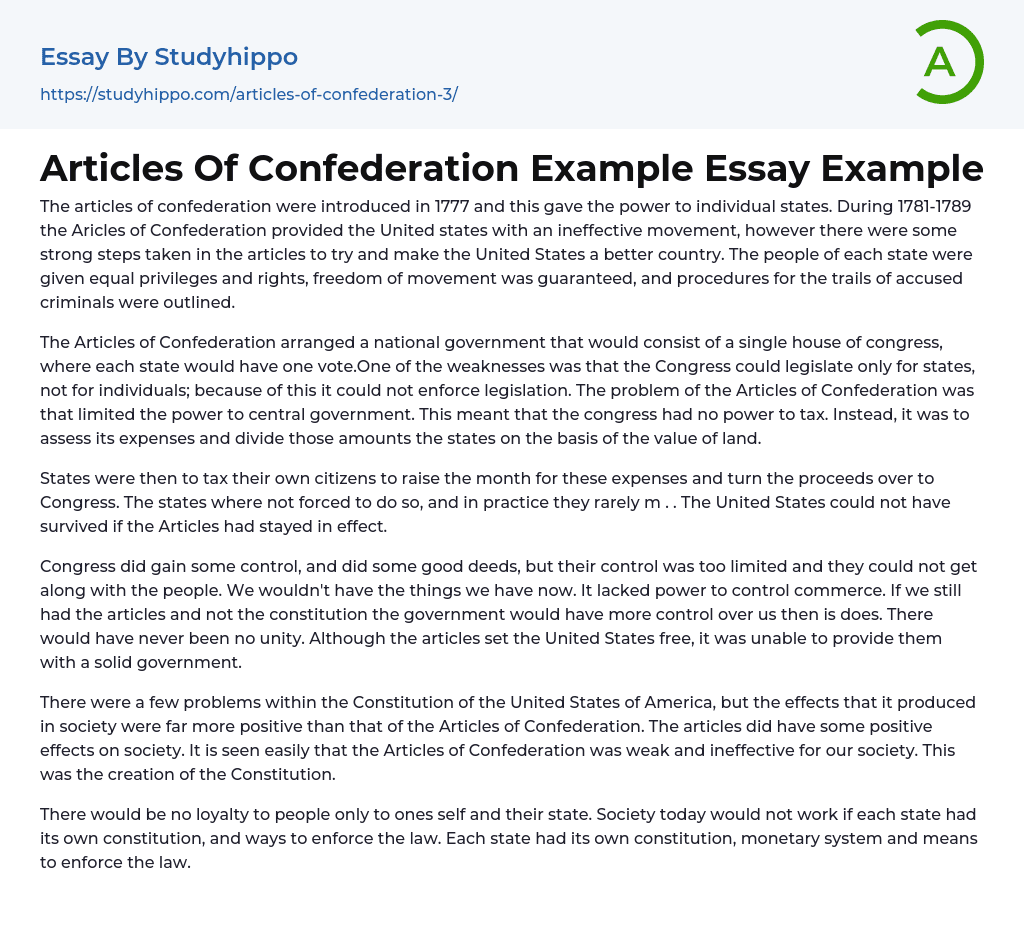Introduced in 1777, the Articles of Confederation granted power to individual states. Although the Articles proved ineffective during 1781-1789, they did include important measures aimed at improving the United States. These measures included equal rights and privileges for citizens of each state, guaranteed freedom of movement, and outlined procedures for criminal trials.
The Articles of Confederation established a national government that comprised a sole congress chamber, where each state had an equal vote. However, the congress could only approve legislation for states and not individuals, thus failing to enforce the law. The confederation's drawback was that it limited the central government's authority by depriving congress of taxation power. Instead, the congress was tasked with evaluating expenses and dividing them across states proportional to their land value.
Under the Articles, individual states were responsible for
...providing funding to Congress through taxing their own citizens. However, there was no obligation for states to comply and in reality, they seldom did. It is clear that if the Articles had remained in place, the United States would not have been able to endure.
Congress achieved some level of control and accomplished positive actions, but their authority was insufficient and they struggled to connect with the population. Without the current Constitution, the country would lack essential advancements and Congress would possess more control over citizens. Additionally, the Articles of Confederation did not grant the government enough power to regulate commerce, hindering the country's progress. Although the Articles initially gave independence to the United States, they were unable to establish a sturdy government.
Despite some issues with the Constitution of the United States, its impact on society was primarily favorable compared to th
Articles of Confederation. Though the latter did have some beneficial effects, it was evidently weak and ineffective. Therefore, the Constitution emerged as a necessary replacement.
Without loyalty to others, only to oneself and one's own state, society would not function if each state had its own constitution, monetary system and means of enforcing laws.
- First Amendment essays
- Abolitionism essays
- Adam Smith essays
- American History essays
- American Revolution essays
- Ancient Egypt essays
- Articles Of Confederation essays
- Atlantic Slave Trade essays
- Aztec essays
- Benjamin Franklin essays
- Civil Rights Act of 1964 essays
- Civil Rights Movement essays
- Civil war essays
- Cleopatra essays
- French And Indian War essays
- Gettysburg essays
- Great Depression essays
- Hurricane Katrina essays
- Industrial Revolution essays
- Jamestown essays
- Manifest Destiny essays
- Mccarthyism essays
- Patrick Henry essays
- Pearl Harbor essays
- Pocahontas essays
- Prohibition essays
- Pyramids essays
- Salem Witch Trials essays
- Slavery essays
- The New Deal essays
- Thirteen Colonies essays
- Westward Expansion essays
- Agreement essays
- Business Law essays
- Common Law essays
- Community Policing essays
- Constitution essays
- Consumer Protection essays
- Contract essays
- Contract Law essays
- Copyright Infringement essays
- Court essays
- Crime essays
- Criminal Law essays
- Employment Law essays
- Family Law essays
- Injustice essays
- Judge essays
- Jury essays
- Justice essays




